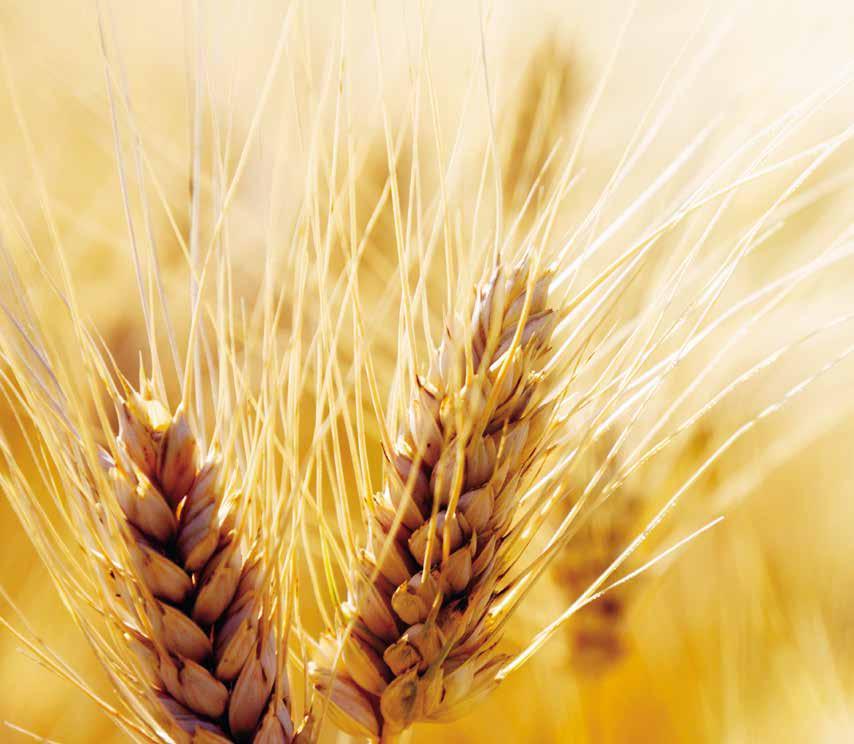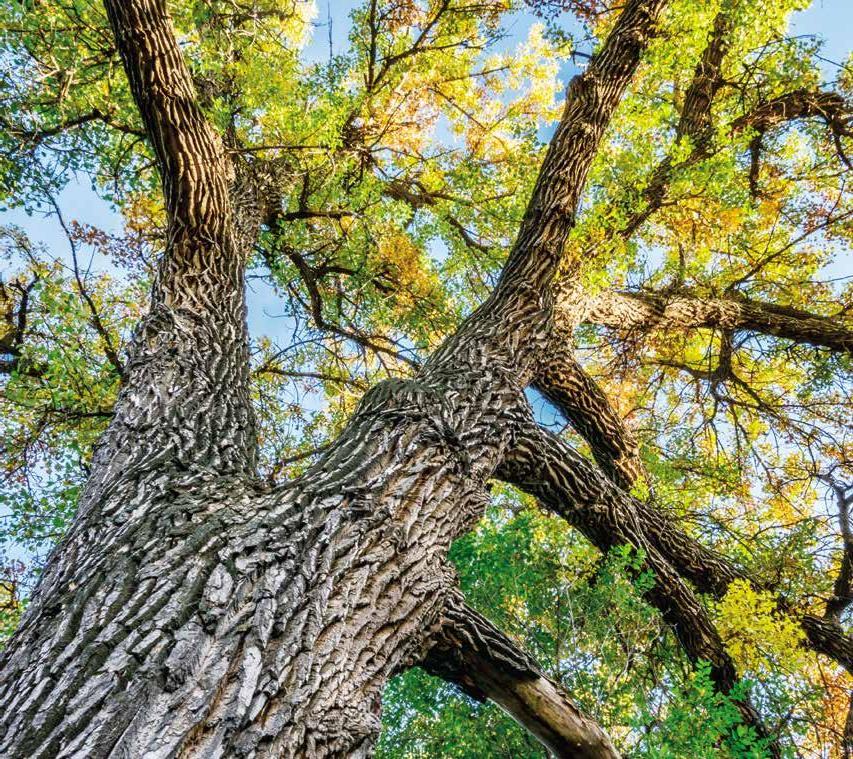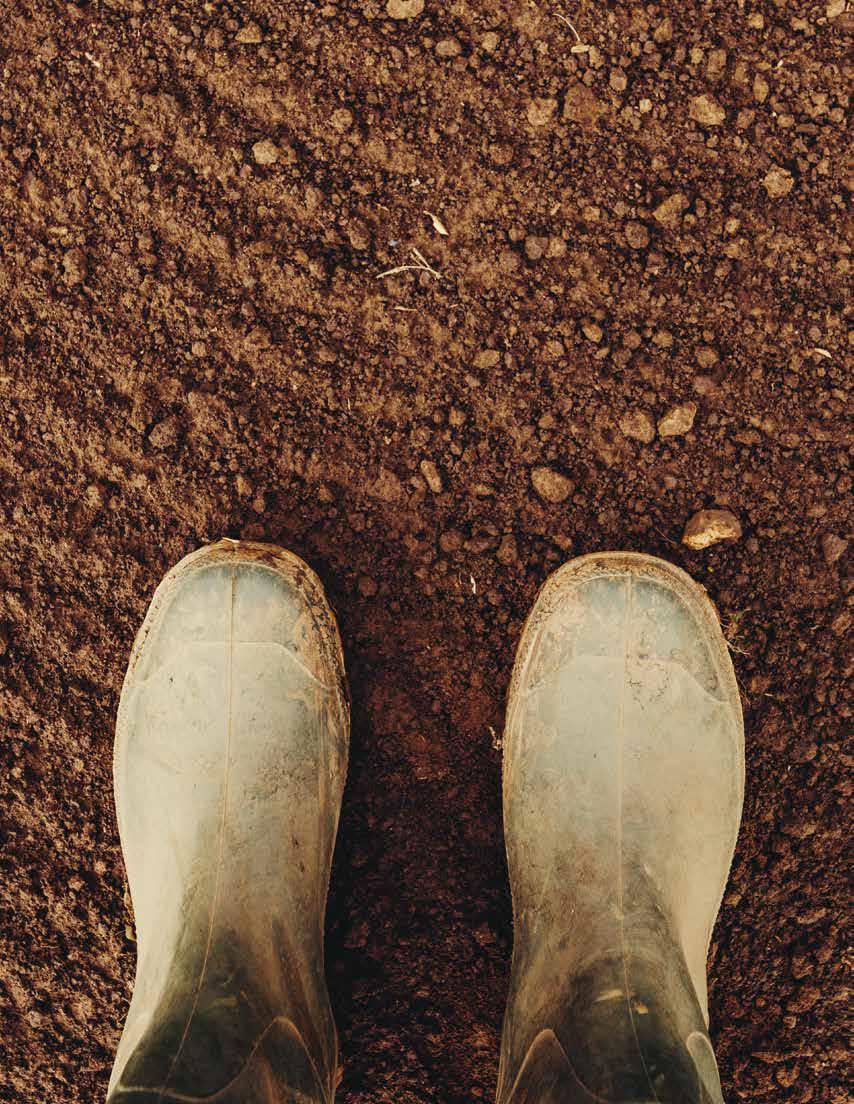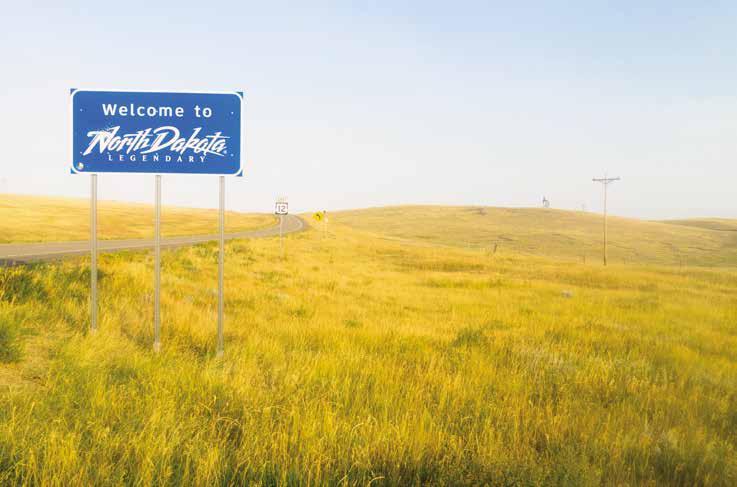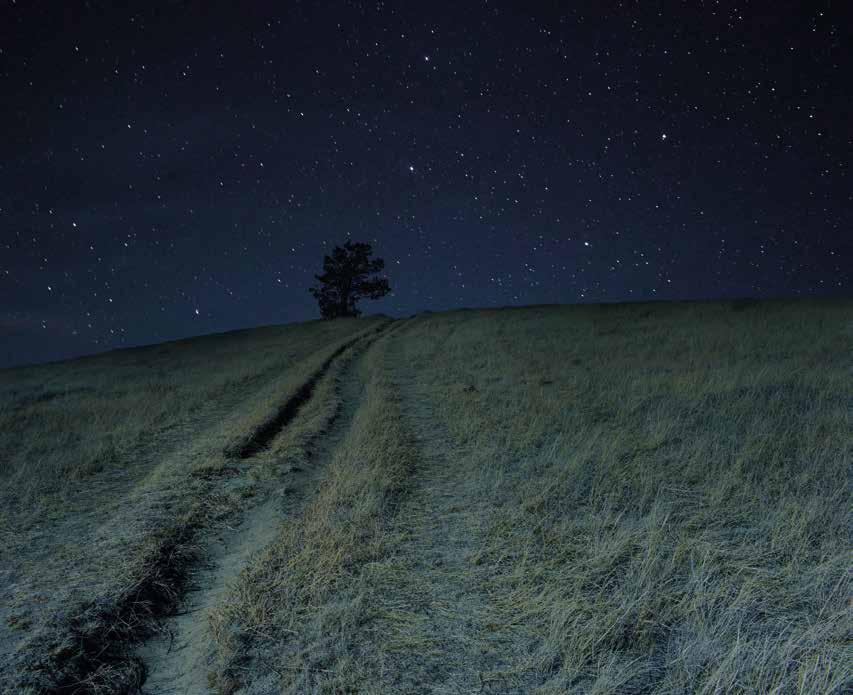| SENSE OF PLACE |
FINDING MY PLACE BY FINDING WENDELL BERRY by Jane M. Schreck
38
A
t the end of the first decade of the twentyfirst century, I found
myself teaching English at a community college and enrolled in a doctoral program on teaching and learning in higher education. In a time of giddy promise from technological innovation, with some of my cohort classmates choosing dissertation topics about online learning or computer-aided instruction, I found myself captured by the writings of Kentucky writer-thinker-farmer Wendell Berry and the idea of applying his philosophy of agrarianism and place to higher education. My choice of Berry as a dissertation topic came as a profound surprise to me. After all, I was raised on Velveeta cheese. Velveeta is not even cheese, really. Officially, it is identified on the box as a “pasteurized prepared cheese product.” And my Velveeta was typically served on supermarket bread. For years, only with my paternal grandmother did I encounter real cheese. During Memorial Day weekend, for example, the family ritual was to pile into the station wagon and drive with Grandma the sixty miles to a large but nearly vacant cemetery on the edge of tiny Mercer, North Dakota. Our mission was to clean up the gravesites of my grandfather, his first wife, and their firstborn daughter, born and dead in just two days, something we kids seemed to discover anew each year when we studied the granite dates. And here too was the plot where my grandmother would be buried in her ninety-sixth year. It was all very matter-of-fact, even lighthearted. Grandma would bring bedding plants, a spade, and hand tools, and I would have to witness the unusual spectacle of my father awkwardly wielding a spade in his wingtip shoes. Afterward, with the lunch Grandma packed, we would have a picnic, sometimes at the town park, but often at the
cemetery. The staple of the lunch was cheese sandwiches, made with bread she had baked herself and cut in thick, irregular slices, holding pieces of her exotically real cheddar cheese. Sometimes too we would have applesauce that she had made with apples from her own tree. Perhaps I make too much of Velveeta. I recognize that the cheese my grandmother served had been purchased at a grocery store, too, but somehow the difference between the cheese in her sandwiches and Velveeta seems to me now emblematic of the difference in a way of viewing the world. Velveeta is a food much removed from its source, placeless and somehow to me vaguely modern and urban. And I was raised as a modern, urban kid, even in North Dakota. Though I rambled about outdoors in a big backyard or in nearby vacant lots and prairie parks, I grew up more indoors than out. My family is generations removed from making a living directly from the land. My people had city jobs even in small towns. One grandfather was a shopkeeper with aspirations of being a businessman, as his sons became, and in the early part of the century, he sold some of the first automobiles in the state. He arrived in Mercer on a bicycle, but he would leave in the mid-1920s in a car. My other grandfather was a postmaster and newspaper editor. He even had a job for a time in North Dakota's tallest building, the state Capitol. One grandmother was educated to be a schoolteacher and, in her widowhood, worked as a librarian. When I knew her, she walked or took the bus to get around town and lived in an apartment that begged to be in a big city. Though I am aware that I did not come from a big city, still the farmland and ranchland that I saw as a child blurring past the side window of our station wagon seemed not hostile but certainly alien to my people and our history. Only my paternal grandmother—she of the strange, hard cheese—seemed to identify with the land. She too had been educated to be a teacher, but for a brief time,





